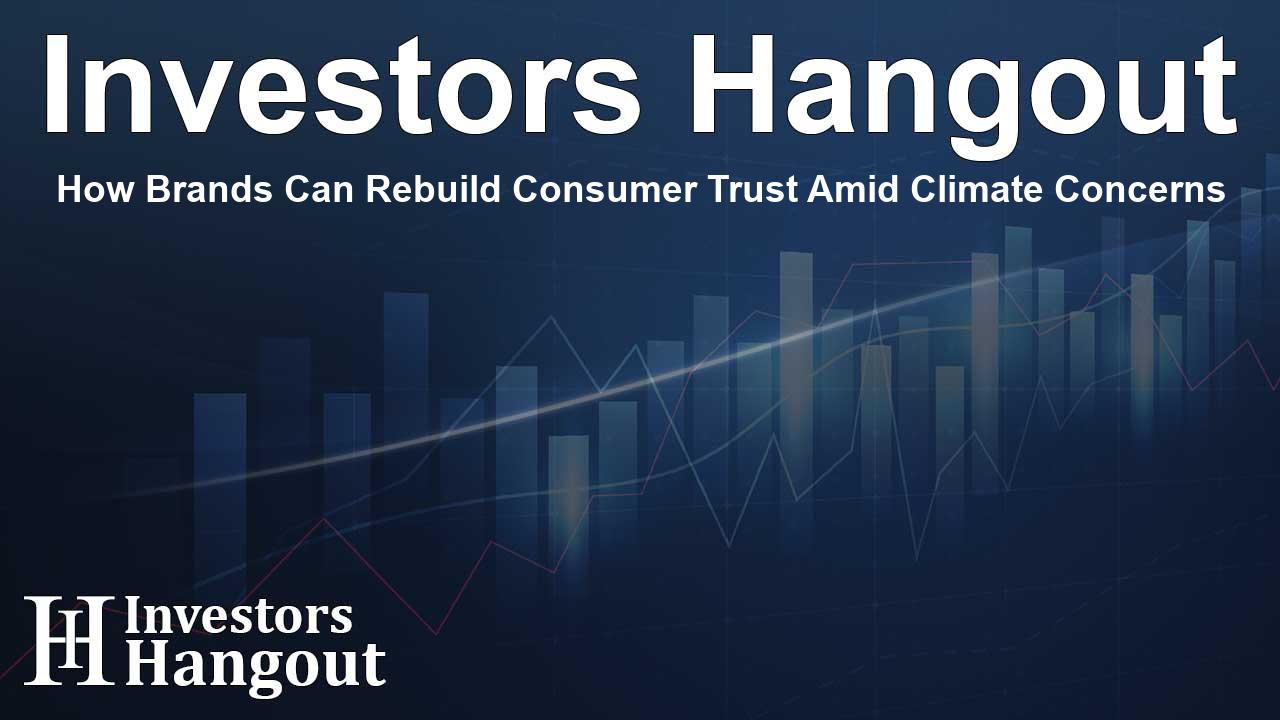How Brands Can Rebuild Consumer Trust Amid Climate Concerns

Understanding the Growing Concerns Among Consumers
Recent studies reveal that a significant portion of the population is becoming increasingly skeptical about the prospect of saving the planet. This sentiment is particularly apparent as new research highlights a decline in eco-confidence, especially among consumers. The belief that immediate action can salvage our environment has waned noticeably. For instance, a global survey indicated a drop from 50% to 40% of US participants who feel we can still make a positive impact on our planetary future.
The Dwindling Sense of Individual Responsibility
Interestingly, many individuals are also starting to doubt their personal influence on environmental issues. The percentage of consumers who feel that their actions can effect change has seen a decline across the globe. This shift is even more pronounced within the US, where 45% of people expressed confidence in their capability to make a difference, down from 48% in previous years. This decrease indicates a broader trend of disillusionment regarding personal responsibility and climate change.
Shifts in Public Perception
Furthermore, public perception about the role of the US in climate change has shifted. Only 39% of American consumers acknowledge the country’s contribution to climate issues, a notable drop from 46% just a few years ago. Despite this trend, recent extreme weather events have led many to reassess their actions, as evidenced by a rise in those committing to personal environmental efforts.
The Role of Eco-Activism
Eco-activists are gaining traction as vital educators in environmental matters. Research shows that more consumers recognize the role of these activists in raising awareness of ecological challenges, with 43% agreeing that activists help inform them. However, skepticism remains; a substantial number of consumers distrust corporate honesty regarding environmental practices.
The Importance of Brand Transparency
As reported by industry experts, the challenge for brands lies in the prevailing doubt among consumers about their environmental claims. Over a third of Americans (31%) do not trust companies to be forthright about their ecological impacts. This skepticism underscores the need for brands to foster trust through transparency and accountability.
Strategies for Brands to Rebuild Trust
Given the current climate of mistrust, how can brands effectively engage with consumers? Firstly, clear communication and transparent metrics are essential. Incorporating straightforward sustainability labels could significantly influence purchasing decisions. For example, a simple rating scale indicating a product’s environmental impact could guide consumers in making informed choices.
Humanizing the Climate Crisis
Moreover, consumers are interested in understanding the broader implications of their purchases. Information that connects products to positive social outcomes, such as helping communities or reducing poverty among farmers, resonates strongly with shoppers. Brands should focus on humanizing climate challenges and solutions, making sustainability relevant and personal to consumers.
Prioritizing Personal Health in Sustainable Choices
The ongoing climate crisis has transformed into a pressing public health issue, making it increasingly vital for brands to align their messaging around health benefits related to sustainable products. Emphasizing individual advantages—like enhanced wellness, efficiency, and cost-effectiveness—can encourage consumers to embrace sustainable choices without feeling overwhelmed.
Conclusion: The Path Forward for Brands
In conclusion, the path forward for brands in this climate of skepticism involves not just transparency, but a broad-based effort to resonate with consumers on deeper levels. By accurately addressing environmental concerns while effectively communicating the benefits of sustainable choices, brands can work towards rebuilding trust and encouraging more sustainable consumer habits.
Frequently Asked Questions
Why are so many consumers losing faith in sustainability efforts?
Many consumers feel overwhelmed by the scale of environmental challenges and become disillusioned when they perceive a lack of personal impact, leading to decreased faith in saving the planet.
What role do eco-activists play in shaping public consciousness?
Eco-activists help raise awareness about environmental issues, prompting more people to reconsider their actions and the impact those actions have on the planet.
How can brands address consumer skepticism regarding their environmental impact?
Brands can foster trust through clear communication, transparency regarding their practices, and sustainability metrics that resonate with consumers.
In what ways can sustainable products be framed as beneficial to consumers?
Positioning sustainable products in terms of personal health benefits, efficiency, and social impact can make them more appealing to consumers.
What strategies should brands employ to engage consumers about sustainability?
Brands should utilize straightforward sustainability labeling and focus messaging on humanizing the climate crisis to create a more relatable and engaging conversation.
About Investors Hangout
Investors Hangout is a leading online stock forum for financial discussion and learning, offering a wide range of free tools and resources. It draws in traders of all levels, who exchange market knowledge, investigate trading tactics, and keep an eye on industry developments in real time. Featuring financial articles, stock message boards, quotes, charts, company profiles, and live news updates. Through cooperative learning and a wealth of informational resources, it helps users from novices creating their first portfolios to experts honing their techniques. Join Investors Hangout today: https://investorshangout.com/
Disclaimer: The content of this article is solely for general informational purposes only; it does not represent legal, financial, or investment advice. Investors Hangout does not offer financial advice; the author is not a licensed financial advisor. Consult a qualified advisor before making any financial or investment decisions based on this article. The author's interpretation of publicly available data shapes the opinions presented here; as a result, they should not be taken as advice to purchase, sell, or hold any securities mentioned or any other investments. The author does not guarantee the accuracy, completeness, or timeliness of any material, providing it "as is." Information and market conditions may change; past performance is not indicative of future outcomes. If any of the material offered here is inaccurate, please contact us for corrections.